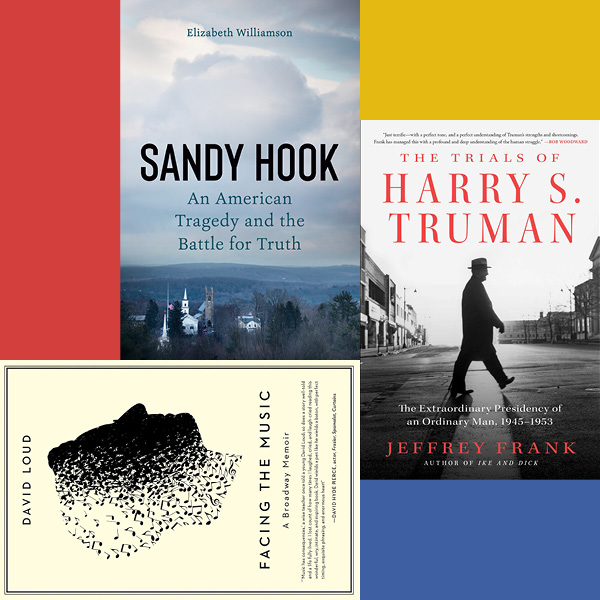In the annals of David vs. Goliath legal cases in which the fellow with the slingshot wins, few are as heartening as the recent $73 million settlement with Remington reached by the families of nine of the victims killed by a lone gunman armed with an AR-15-style rifle made by the company. The Sandy Hook massacre, which took place in December 2012, when 20-year-old Adam Lanza entered an elementary school in Newtown, Connecticut, and killed 20 first-graders and six educators, was horrific beyond words, but as Elizabeth Williamson vividly shows in her book, the tragedy unleashed an odious campaign by Alex Jones and others to prove that it had been faked for nefarious reasons. The author methodically traces the arc of this campaign and the damage it inflicted on families already devastated by grief, deftly portraying those who fought back against Jones and are succeeding in their battle against a rotted system that too often lets lies fly without consequence.
Jeffrey Frank is a brave writer for having taken on a subject that historian David McCullough had handled so exhaustively in Truman,his 1992 Pulitzer Prize–winning biography of the 33rd president. So it is a pleasure to report that Frank’s courage is to be applauded, since he has written a remarkably engaging narrative of what Harry Truman was like as president and the challenges he faced. Truman had a more eventful presidency than most occupants of the Oval Office have had, and Frank views the man and his virtues and flaws with an acute empathy that never slips into sugary sentimentality. Nothing tested Truman as much as the Korean War did, and what Dwight Eisenhower, his successor, wrote at the time bears a sobering truth: “If his wisdom could only equal his good intent!!”

